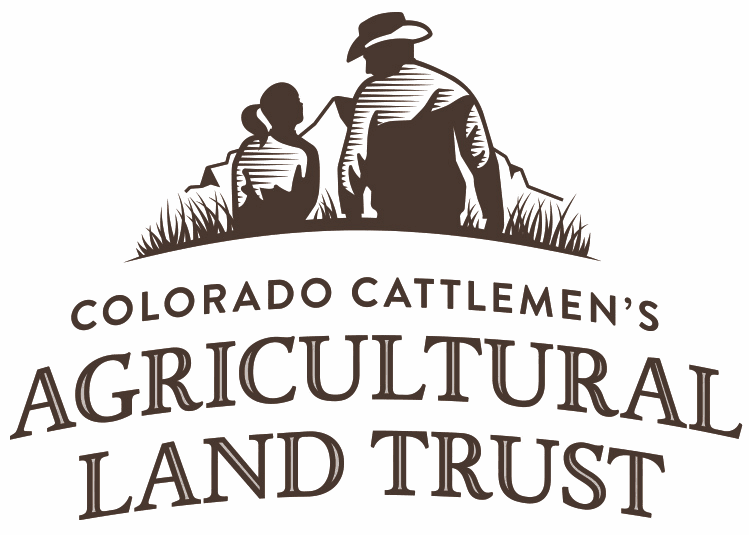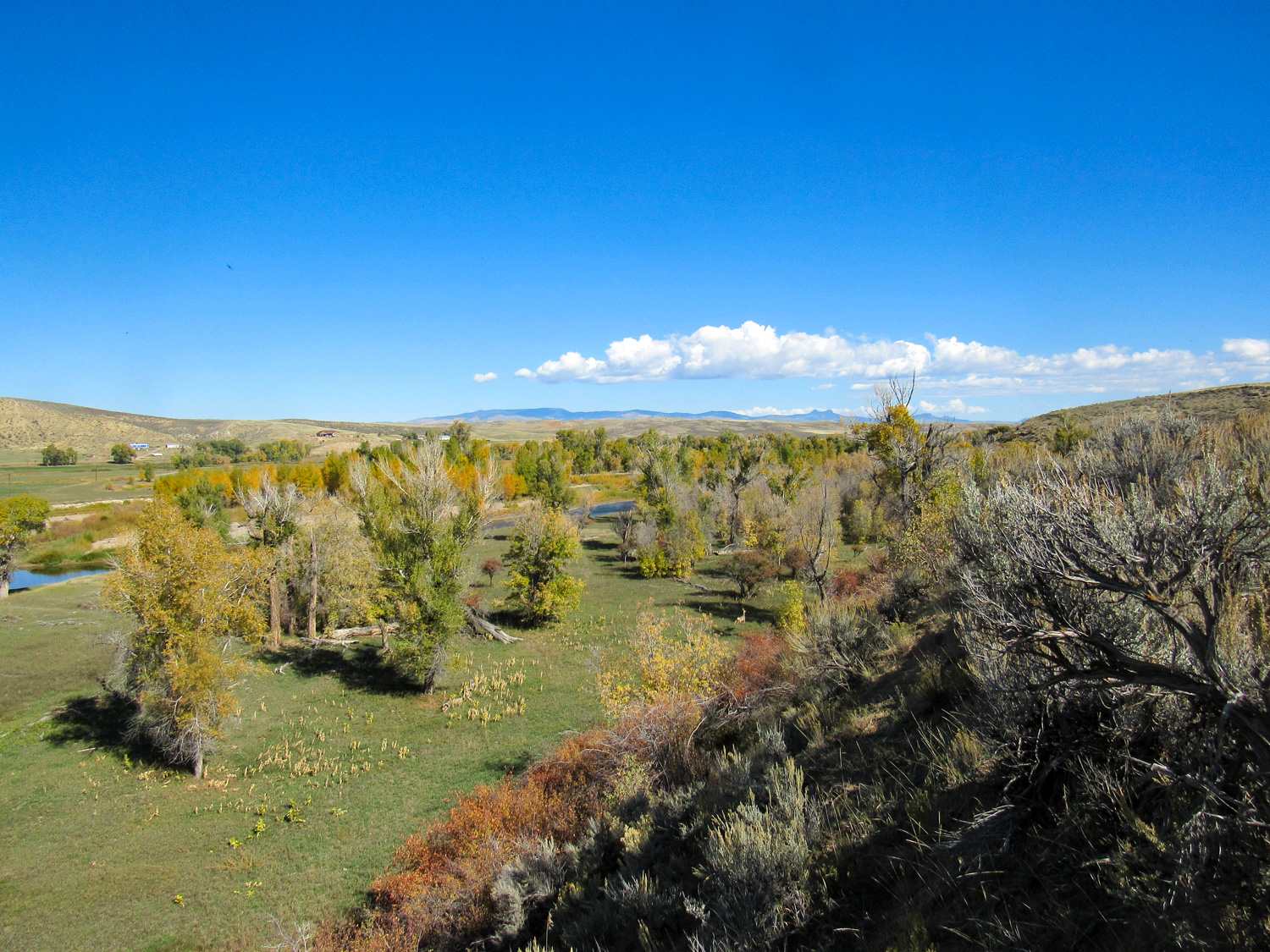Hume Ranch Conserved
FOR IMMEDIATE RELEASE
New Conservation Easement Protects Fertile Ground in a Region Vulnerable to Climate Change
Media Inquiries: Karina Puikkonen, karina@ccalt.org, 720.557.8277
June 26, 2023
The Hume Ranch conservation easement will conserve a property where family, cattle, and wildlife can thrive all year long.
CRAIG, Colo. – With a century long connection to the cyclical nature of working lands, the Hume family has partnered with the Colorado Cattlemen’s Agricultural Land Trust (CCALT) to permanently conserve their 975-acre ranch located five miles east of Craig. This important conservation easement protects year-round operations on abundant lands that provide spring and summer range for cattle, fall hay production which becomes winter feed, more than one mile of the Yampa River, and a wildlife migration corridor that supports big game species all year long.
U.S. Highway 40 bisects the ranch, where the Humes run a cow-calf operation. Their abundant grass-hay production benefits from the high water table along the Yampa River and senior irrigation water rights from the Norvell Ditch and Rowley Pump Station. According to the USDA Natural Resources Conservation Service (NRCS), the ranch contains over 150 acres of Farmland of Statewide Importance, predominately on southern portions of the ranch, where the fertile ground is also utilized as fall and winter pasture.
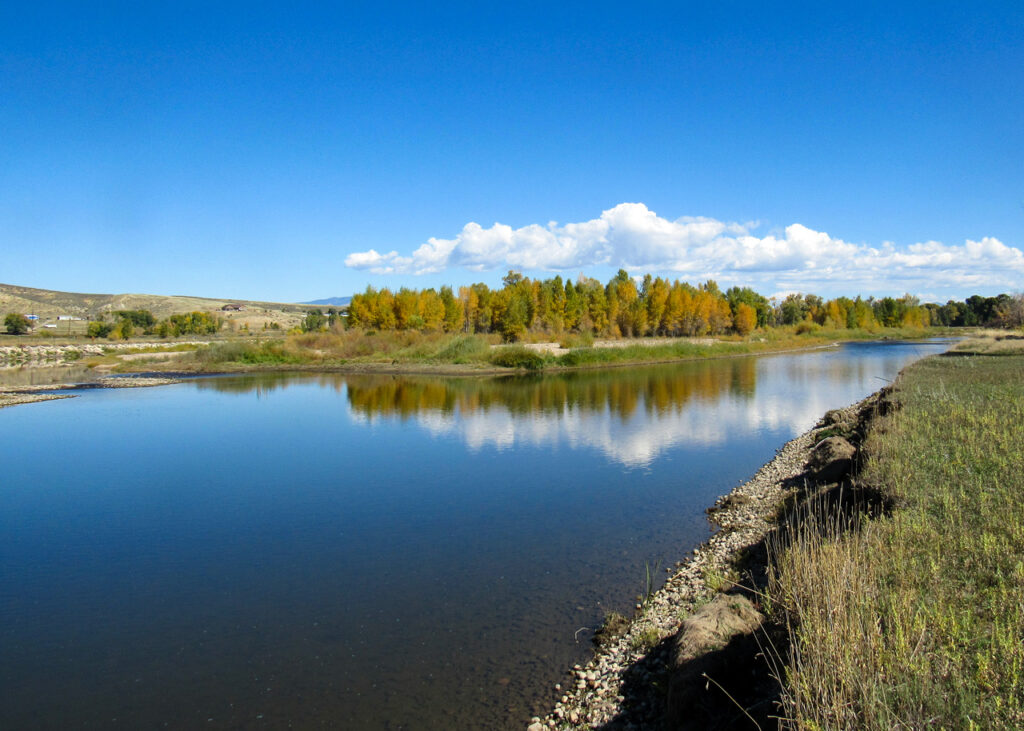
Restoration and resilience embody the Hume family’s approach to the land. Jim Hume and his wife, Roberta live on the ranch and Jim manages the operation with their twin sons, Jake and Jared, under Hume Land, LLC. Roberta’s grandfather homesteaded near the property in 1913 and initially purchased some of the property in the 1920s, but like many other families in the area lost their home during the Great Depression. Subsequent generations, including Jim, Jared, and Jake acquired additional land over the years to piece together the property that is now permanently conserved. Father and sons agreed that ensuring their families and land remain linked forever shows the Hume family’s multigenerational commitment to their ranching operation.
“We want future generations to see the land the same as we see it now,” said Jake Hume. “To have the same opportunities we have enjoyed in raising a family and raising livestock while respecting wildlife and taking care of the land, all while working together to make sure that nothing gets left out.”
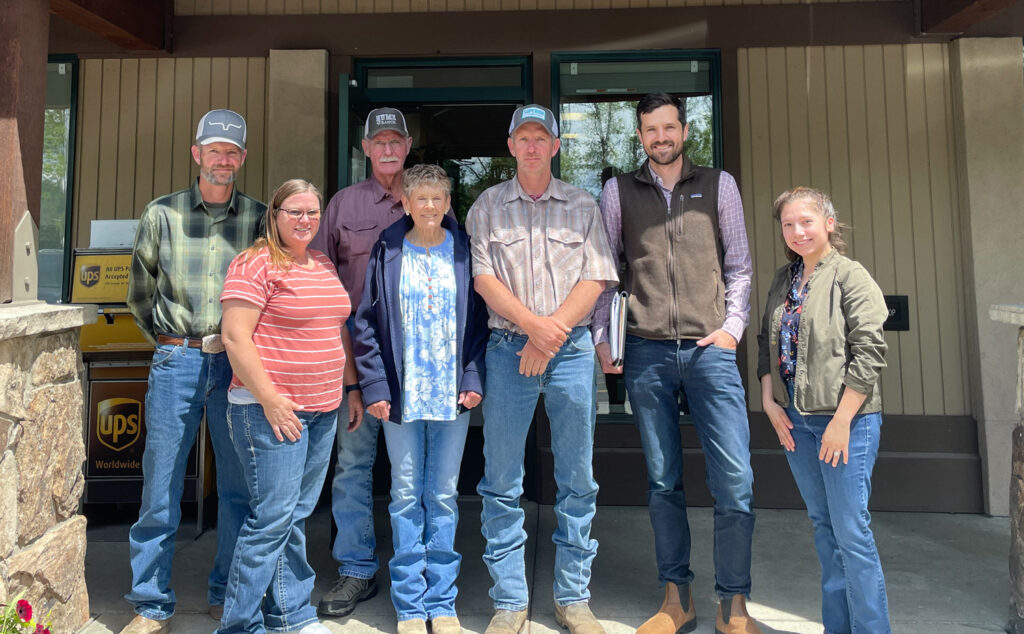
To continue growing their cattle operations, the Hume family recently reseeded portions of the ranch north of U.S. Highway 40 that were previously utilized for wheat production back to native, perennial vegetation with help from the NRCS, which also provided funds for the conservation easement. The Humes plan to continue evaluating these areas to determine sustainable stocking rates.
“The NRCS’s Agricultural Conservation Easement Program was designed for landscapes like the Hume Ranch,” said Clint Evans, NRCS State Conservationist in Colorado. “ACEP protects the agricultural viability and related conservation values of prime agricultural land by limiting nonagricultural uses of that land. The Hume property is prime working agricultural land. It’s in an area that contains habitat for nine of Colorado’s quintessential animal species, several game species and breeding/nesting birds; the installation of this easement will also advance the important, on-going conservation efforts in Moffat County.”
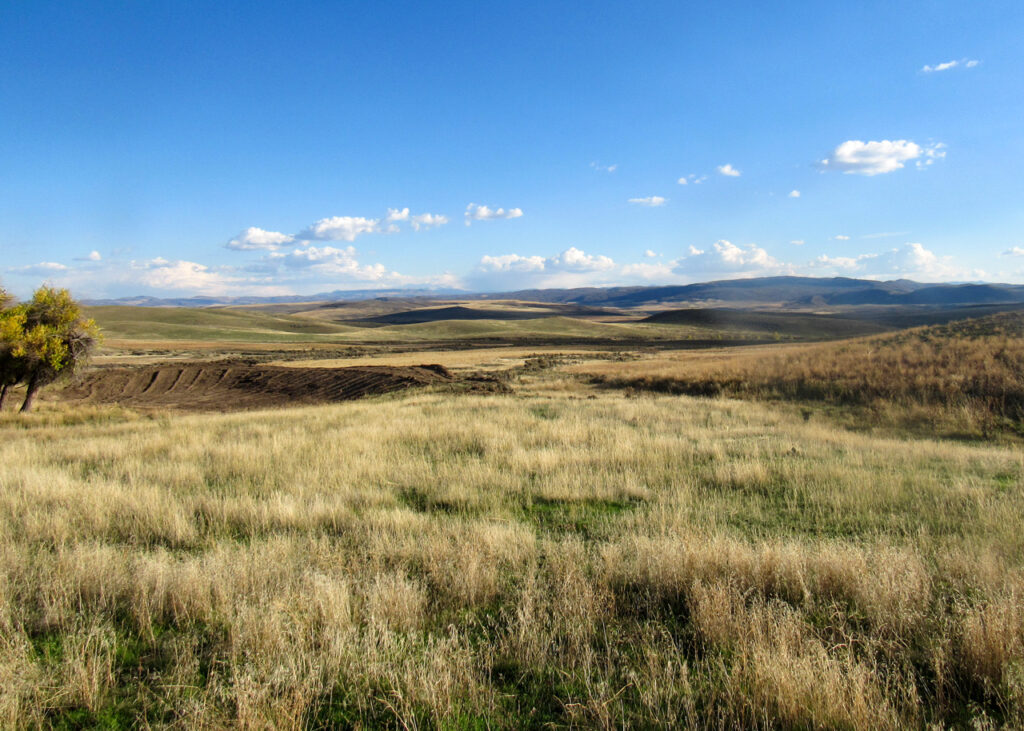
Ensuring Hume family lands stay in family hands wasn’t the only motivation for conserving the ranch. The property in its natural and undivided state provides excellent habitat for elk and mule deer across its variety of sagebrush rangelands, shrub rangelands, and grass rangelands. Colorado Parks and Wildlife (CPW) has identified the property as part of an important elk migration corridor and winter concentration area. CPW also recognizes the ranch as critical habitat for a variety of birds, fish, and mammals that rely on the Yampa River riparian corridor. For example, sandhill cranes enjoy the uplands and network of stock ponds throughout the property. John Gioia, CCALT’s Director of Transactions, said this conservation easement shows how Colorado’s western heritage and working lands can benefit natural landscapes that surround these properties.
“The Humes’ dedication to stewardship is in full view from Highway 40. This conservation easement is a great example of how an agricultural conservation easement can support a working ranch operation while also protecting critical wildlife habitat, big game migration corridors, and scenic views,” Gioia said. “It has been a pleasure working with the Humes and I look forward to CCALT’s long-term partnership with the family.”
Year-round travelers along U.S. Highway 40 will enjoy the landscape’s scenic value with vast rangelands to the north and fertile grasslands around the Yampa River to the south. Within 10 miles of the Hume Ranch, there are over 3,400 acres of lands protected in conservation easements, as well as public and state lands managed by the Bureau of Land Management, Colorado State Land Board, and Colorado Parks and Wildlife.
Transaction cost assistance for this conservation easement was provided by CPW’s Habitat Partnership Program through its Northwest Committee.
About the Colorado Cattlemen’s Agricultural Land Trust
The Colorado Cattlemen’s Agricultural Land Trust (CCALT) is a nonprofit land conservation organization whose mission is to “…conserve Colorado’s western heritage and working landscapes for the benefit of future generations.” CCALT has partnered with hundreds of ranching families in the protection of more than 750,000 acres.
About the USDA Natural Resources Conservation Service
USDA’s Natural Resources Conservation Service provides technical and financial assistance to help agricultural producers and others care for the land. The Agency prioritizes conservation planning and uses conservation programs in the Farm Bill to implement most of its efforts including the Agricultural Conservation Easement Program which is designed to protect the agricultural viability, grazing uses and related conservation values of prime agricultural land by limiting nonagricultural uses of that land.
About Colorado Parks and Wildlife
Colorado Parks and Wildlife (CPW) works to perpetuate the wildlife resources of the state, provide a quality state parks system, and provide an enjoyable and sustainable outdoor recreation opportunities that educate and inspire current and future generations to serve as active stewards of Colorado’s natural resources.
